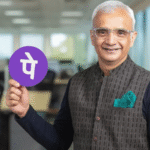Fierce Female Voices with ObserveNow: Rigzin Lachics Journey from Ladakh to Entrepreneurship

In the captivating expanse of Ladakh, situated in the northernmost reaches of India, a vibrant hub has emerged for both intrepid adventurers and culture enthusiasts. Its rugged landscapes, crystalline lakes, and ancient monasteries exert a magnetic pull on travelers worldwide.
Within this burgeoning tourism sector, women have assumed a central role, not just as business owners but also as cultural emissaries. Whether managing guesthouses and homestays, guiding trekking ventures, or preserving traditional handicrafts, Ladakhi women are shattering barriers and fostering empowerment through tourism. On the occasion of International Women’s Day, Siddharth Mala, Correspondent, ObserveNow Media, engaged in a conversation with Rigzin Lachic, Founder of Dolkar and General Secretary of the All Ladakh Hotel and Guest House Association, exploring her journey in advancing women’s empowerment.
Rigzin reflected on her journey, expressing that how each summer when she used return to Ladakh, her grandparents questioned if her education would benefit their homeland. Despite studying in various parts of India and working in Tokyo and Delhi, she never felt fully satisfied. Her longing for more meaningful work led her to create “Dolkhar,” named after her grandmother, with the intention of preserving the land as her grandmother envisioned, as an integral part of the ecosystem. Motivated by her admiration for Ladakhi traditions and the imperative of sustainable development, she entered the hospitality industry, inspired by the elders’ sustainable practices and the necessity of integrating traditional methods amidst tourism growth.
Below are some edited excerpts from the interview:
How do you envision your venture contributing to breaking down societal barriers and empowering women to take on leadership roles and pursue their aspirations in Ladakh?
Ladakh has a lot of incredible women making great strides professionally. The culture in the valley has been kinder to women than in most other places I know. Having said that- there is no denying that it still takes a lot for a woman to break out of archetypes that have been set for her. For instance, when Dolkhar was in its construction phase people often asked if there was an elder person involved before making decisions. The idea of a woman overseeing construction was so alien to people. We might not be able to correlate a woman being on a construction site every day and making every decision along the way to how it inspired women around but it surely got the idea slightly closer to being “normal”, acceptable or in a few cases even respected in people’s minds and Dolkhar is also a woman-led company that has some great female talent in its repertoire and in an industry that still has a significant imbalance in its gender ratio.
“Hatti”- your initiative to support local artisans, sounds fascinating. What challenges have you faced in promoting their work, and what strategies are you employing to overcome them?
“Hatti,” a social enterprise that empowers local artisans and showcases Ladakh’s rich metal, ceramic, wood, and textile crafts. This initiative is a reflection Dolkhar’s multidimensional approach to cultural preservation and sustainable development. While interacting with the artisans- whether to create a platform for them or to purchase their products for Dolkhar, the biggest challenge was to make them realise the value of their own skills and products. To create a sense of pride within them. For instance, the weavers weren’t very confident about me keeping their rugs and carpets in the villas. Once it was all done, they visited Dolkhar and they had a new sense of pride and ever since they have been creating products for a range custom orders- some even for hotels outside of Ladakh.
In your opinion, how can sustainable tourism contribute to the long-term well-being of Ladakh’s environment and communities?
Ladakh’s economy lies heavily on tourism and as of today it is unfortunately extractive in nature. Given the ecologically sensitive nature of the valley and the great strain on the environment tourists and conventional tourism practices put on it- I can say to a certainty that Ladakh will face severe natural challenges if we don’t adopt sustainable methods of tourism- methods that allow regeneration!
So, in my opinion, if the objective is a healthy continuum, regenerative and sustainable tourism is not just a contributor but the only way forward for Ladakh.
Our approach at Dolkhar constantly seeks innovative and sustainable solutions that align with the larger ecosystem. We strive to minimise our impact while maximising positive contributions to the local environment and culture, ensuring we adapt alongside evolving needs. The ways of working involve conscious choices of reducing consumption, using natural materials, creating a zero-waste kitchen, and employing passive solar heating methods. Central to everything always remains a profound respect for the ecosystem, environment, local communities, and our rich culture.
Reflecting on your journey so far, what are the key lessons you’ve learned about entrepreneurship and cultural preservation in Ladakh?
The Ladakh region has had a profound impact on me, shaping my vision for the future of Dolkhar. I envision a sustainable travel industry in the Indian Himalayas, recognising the region’s vulnerability to climate change and embracing practices that respect the environment, culture, and people. Entrepreneurship comes with a huge amount of responsibility, and realising the impact of our work on the environment, economy and community is key while making any decisions. No impact, however small is significant, every small decision contributes to the larger impact we strive to achieve.
Ladakhi people as a collective need to take more pride in our culture, traditional wisdom and practices and then we can look to the world to embrace it.
Adding elements that are more relatable to the world and integrating it with our culture Dolkhar enables us to take Ladakh to a larger audience.
What advice would you give to other aspiring entrepreneurs, especially women, who are looking to make a positive impact through their ventures?
I just want to say to all the young women reading this today that, you must dream big because you are so much more than you think you are and you can achieve so much more than you imagine you can achieve!
In all the chaos you must remember to believe in yourself, to rise above all the voices that say you cannot and try, as much as you can, to operate outside of the need for external validation.
For when you do need support though, there are always people, especially women, walking the same “road not taken”- all you need to do is reach out and of course, when the time comes, be part of a larger support network for as many on the same path!
















